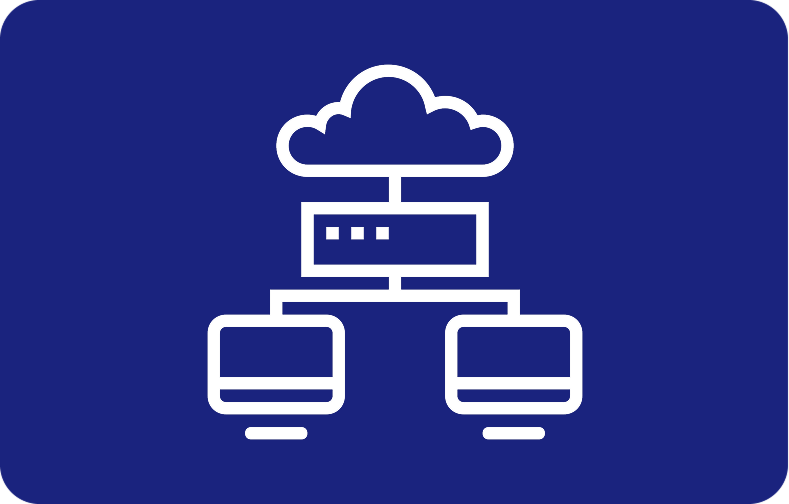What is VPS Hosting?

Need clear information about VPS hosting? You've come to the right place.
A VPS server is your own dedicated slice of resources on a shared physical server, providing an alternative to shared hosting environments and dedicated virtual private servers.
Think of it as having your own apartment in a secure building rather than sharing a crowded hostel. All the apartments share the building's infrastructure (like power and internet), but each resident has their own private space with dedicated resources.
Similarly, while multiple virtual machines reside on a single physical server, each VPS has its own operating system (Windows and various Linux distributions are available), RAM allocation, CPU cores, storage space, bandwidth, and root access (depending on your provider). This isolation provides VPS users with greater control, security, and performance compared to shared hosting.
VPS vs. other hosting options
To better understand what is VPS hosting, let's compare it to other common hosting options:
- Shared hosting: The most basic and affordable option, where multiple websites share the resources of a single server. This is suitable for small websites with low traffic but offers limited control and performance.
- Dedicated server: A physical server dedicated entirely to a single user. This offers maximum control, performance, and resources but comes at a higher cost.
- Cloud hosting: A network of interconnected servers that pool resources, offering scalability and high availability. VPS is actually a type of cloud hosting, but the term often refers to a more specific, defined allocation of resources.
How does a VPS server work?
Understanding how a VPS server works requires a quick look at the technology behind it. Let's break it down:
- Hypervisor technology: A software layer called a hypervisor divides a physical server into multiple virtual environments.
- Resource allocation: Each virtual environment receives dedicated portions of the server's physical resources.
- Complete isolation: Although multiple VPS instances run on the same physical hardware, they operate independently with no visibility or access to each other.
- Operating system control: Each VPS runs its own complete operating system, allowing full control over the server environment.
Benefits of virtual private server hosting
Understanding when to upgrade to VPS hosting can save you from performance headaches and security vulnerabilities. It's an excellent choice for individuals and businesses that require that sweet spot between the affordability of shared hosting and the power of a dedicated server. Here's what VPS hosting might bring to the table for you:
- With dedicated resources, your website or application won't be affected by the activities of other users on the server. This results in enhanced performance, meaning quicker loading times, smoother websites and applications, and an enhanced user experience in general.
- VPS hosting from VPSServer.com gives you full root access, so you can customize your server environment, install specific software, and configure settings to your exact needs. You can choose your operating system, any apps and services you’ll need, and adjust the hosting environment to your needs.
- As your company expands, your hosting requirements will also increase. VPS hosting allows you to easily scale your resources as your needs grow, without requiring a complete server migration. You can easily allocate more CPU, RAM, storage, or bandwidth to handle peak traffic or demand. This scalability ensures that your website or application always remains accessible and responsive.
- Security is perhaps the most compelling reason to choose a VPS server. On shared servers, vulnerabilities in other websites can potentially impact your site. Since each virtual server operates independently, you are shielded from operating system (OS) vulnerabilities and server errors. To strengthen your server and safeguard your important data, you can also implement your own strong security measures, like third-party firewalls at the server level, SSL certificates, and two-factor authentication.
- VPS balances shared hosting service cost-saving advantages and dedicated servers' performance advantages. It provides a cost-effective option for companies that need specialized server resources but do not want to incur the increased price of maintaining and owning a physical server. With a VPS hosting plan, you only pay for the resources you need, so it’s a great choice for startups and small businesses.
What can you do with a VPS server?
VPS hosting can be used for a wide range of applications. Website hosting allows you to run sites with medium to high traffic, e-commerce stores, and content management systems like WordPress, Joomla, and Drupal.
Application hosting provides an environment for running web applications, custom software, and development environments. Email hosting lets you set up a private and secure email server for your business or personal use.
Game servers can be hosted on a gaming VPS to provide multiplayer experiences for online gamers. Database hosting offers a reliable platform for maintaining databases that power applications and websites.
File storage and backup capabilities allow you to securely store and protect important data. Virtual private network (VPN) services can be created on a VPS to establish private and secure connections to the internet. Forex trading applications benefit from VPS hosting by running trading bots and applications continuously with minimal latency.
Choosing the right VPS hosting provider
When selecting a VPS hosting provider, it's crucial to consider several factors to ensure you make an informed decision that aligns the hosting plan with your needs. Here are the top five factors to take into account when selecting a VPS hosting company:
- Uptime and reliability: To keep your website or application accessible and available, dependability is crucial. Find a provider that offers a high uptime guarantee, such as 99.9% or higher. This is where we shine by providing a solid infrastructure, proactive monitoring, and effective load balancing to maintain uptime and reduce potential disruptions.
- Performance and scalability: Select a VPS company that provides scalable resources on high-performance servers. We use state-of-the-art hardware, cutting-edge networking methods, and optimized configurations to provide blazingly quick performance. Our adaptable solutions enable simple resource scaling, allowing you to handle increasing demands and traffic spikes without sacrificing performance.
- Security measures: It is crucial to safeguard your data and the security of your VPS environment. Be sure to choose a provider with strong security measures, including firewalls, intrusion detection systems, DDoS protection, and regular backups. We prioritize security, utilizing proactive monitoring, industry-standard security protocols, and routine backups to safeguard your data and defend your VPS servers from potential threats.
- Customer support: If you have problems with or have inquiries about your hosting, dependable customer service is essential. Ensure the service provider provides round-the-clock customer care via various methods, including live chat, email, or phone. VPSServer.com offers 24/7 customer assistance from a group of knowledgeable professionals who are on hand to help you with any worries or technical difficulties.
- Value for money: Although cost shouldn't be the only criterion, picking a VPS service with reasonable pricing and value-added features is important. We provide reasonably priced VPS hosting plans with a great blend of performance, resources, and affordability. With our monthly or hourly billing, we offer a cost-effective option for organizations of all sizes, guaranteeing that you only pay for the resources you use.
Unlock the power of VPS hosting with VPSServer.com
VPSServer.com is your gateway to unleashing the true potential of VPS hosting. Our high-performance infrastructure provides maximum uptime and blazingly quick response times. With the help of our user-friendly control panel and adaptable plans, you can easily scale your resources. Control the settings on your virtual server environment and install any required applications. And if you have any issues, our expert support staff is always there for you, 24/7/365.
Frequently Asked Questions
What is VPS hosting used for?
VPS hosting serves a wide range of purposes for businesses and individuals who need more power and control than shared hosting provides, including website and application hosting, gaming servers, private cloud storage, self-hosted file sharing solutions, data backup systems, media storage and streaming servers, development environments, email servers, and remote desktops.
Who needs VPS hosting?
VPS hosting is needed by businesses, developers, individuals, and organizations that require enhanced performance, control, and security for their websites, applications, operating system, or online projects.
What is a VPS server?
A VPS server creates isolated server environments by dividing a single physical machine into multiple virtual compartments using virtualization technology. Each VPS server operates independently with its own allocated resources, even though the underlying hardware is shared among different users.
This hosting solution bridges the gap between basic shared hosting and expensive dedicated servers. You get your own reserved computing power, storage, and memory along with administrative control to customize your server setup - all without paying for an entire physical machine.
VPS hosting appeals to growing businesses and tech-savvy users who've outgrown the limitations of shared hosting but aren't ready for the cost and complexity of managing a full dedicated server.
What is the difference between shared hosting and VPS hosting?
Multiple users or websites share resources on the same physical server during normal hosting, usually called a shared hosting solution. This configuration frequently results in constrained resources, decreased performance, and possible security problems.
Virtual private server (VPS) hosting offers an entire dedicated server in a virtualized setting. Because each virtual server runs separately, better performance, more management, and better security exist. VPS hosting provides a more flexible and adaptable alternative than standard hosting by bridging the gap between shared hosting solutions and dedicated server space.
Is VPS free?
No, VPS hosting is not free. It's a paid service. VPS hosting provides you with dedicated resources (CPU, RAM, storage) on a server. These resources cost money to maintain. Hosting companies also have to invest in and maintain physical servers, network infrastructure, and data centers. Most VPS providers offer customer support, which is another cost factor.
Is VPS better than VPN?
Virtual Private Networks (VPN) and Virtual Private Servers (VPS) serve different purposes. While VPN is a network utility for safe and private internet browsing, VPS is a hosting option that offers dedicated space. Depending on your unique demands and requirements, you can choose between a full VPS hosting work and a VPN.
How many websites can I run on a VPS?
The number of websites you can run on a VPS depends on factors like the server's resources, the complexity of the websites, and the amount of traffic they receive. A VPS may be able to host multiple websites with the right configuration and resource allocation.
Is VPS a cloud server?
All VPS servers are cloud servers, but not all cloud servers are VPS. A cloud server runs on a network of connected virtual servers, whereas a VPS server is a virtualized server inside a real server.
Can I install anything on a VPS?
You can install and customize various software programs, scripts, and frameworks on a VPS. You may alter the entire server environment to suit your particular demands, thanks to the freedom and control VPS hosting offers.
Do you need a firewall on a VPS?
Yes, installing a firewall on your VPS is strongly advised. By regulating incoming and outgoing network traffic, a firewall adds an extra layer of security, shielding your VPS from potential dangers and illegal access, and putting in place firewall aids in protecting your data and preserving the security of your server environment.
How do I get started with a free trial?
To start your free VPS server 30-day trial period, including services worth up to $100, sign up here and validate your e-mail address. Then, you can use the management console to deploy a server and test our infrastructure. You can select a data center, operating system, CPU, RAM, storage, and other system preferences.








.png)


